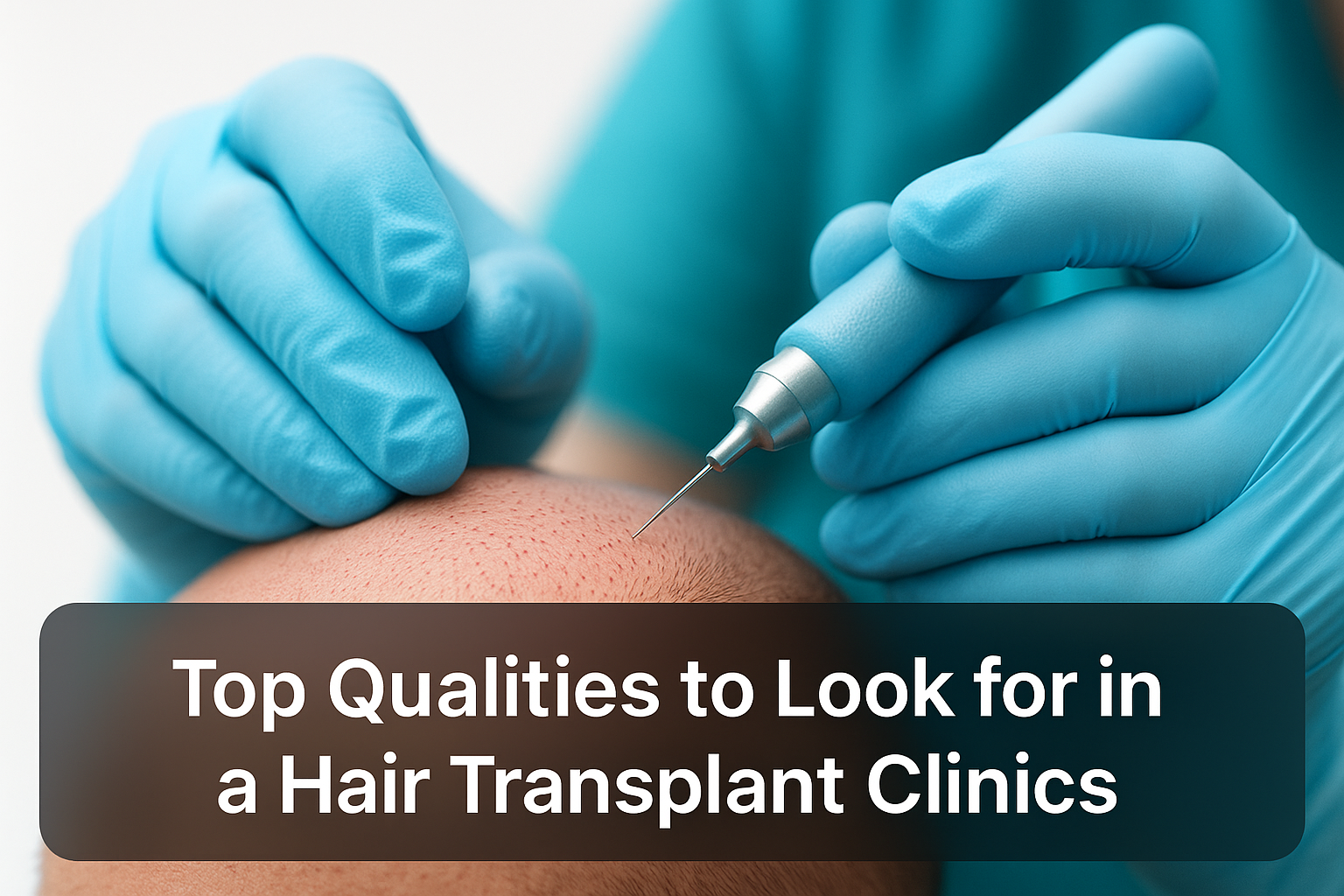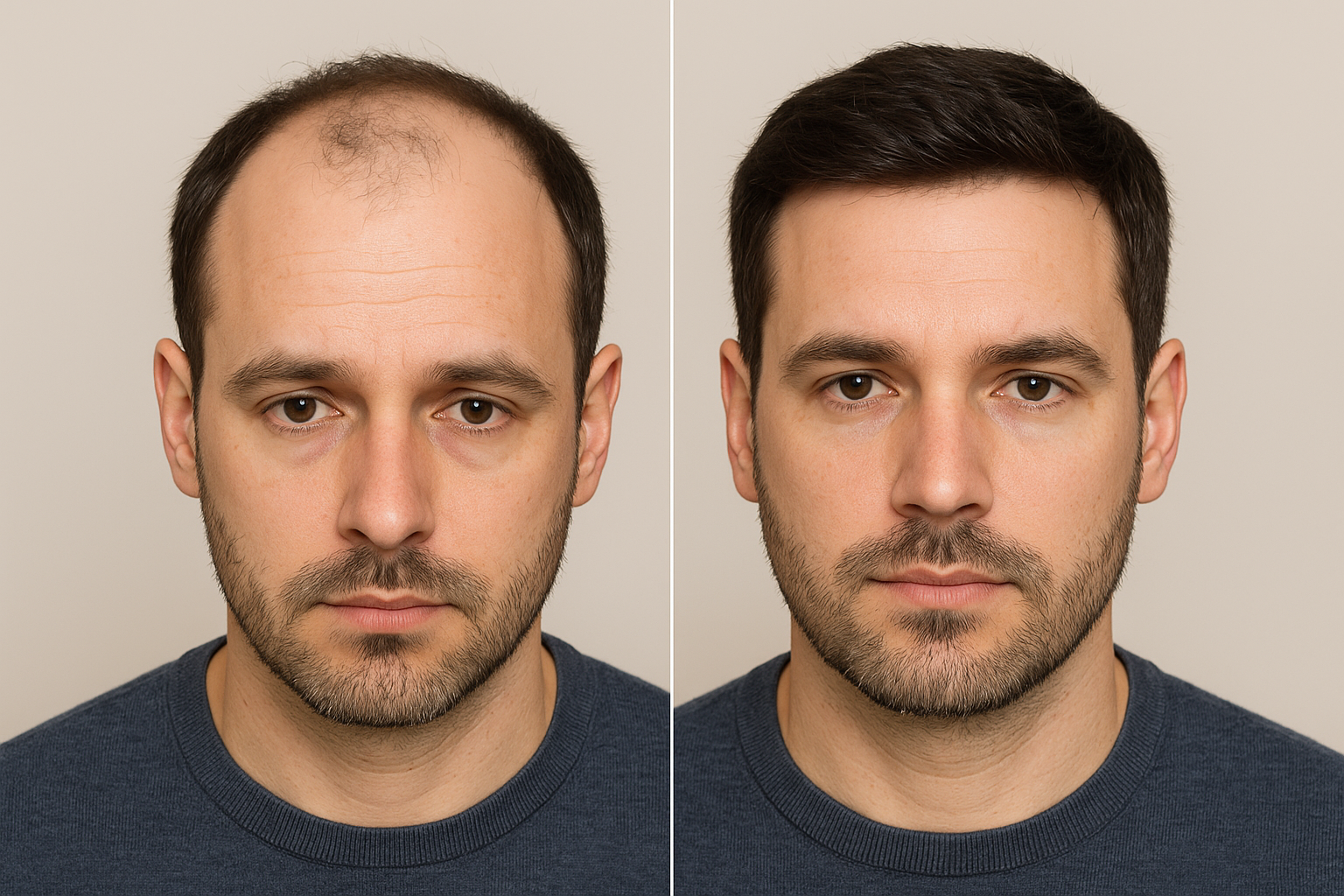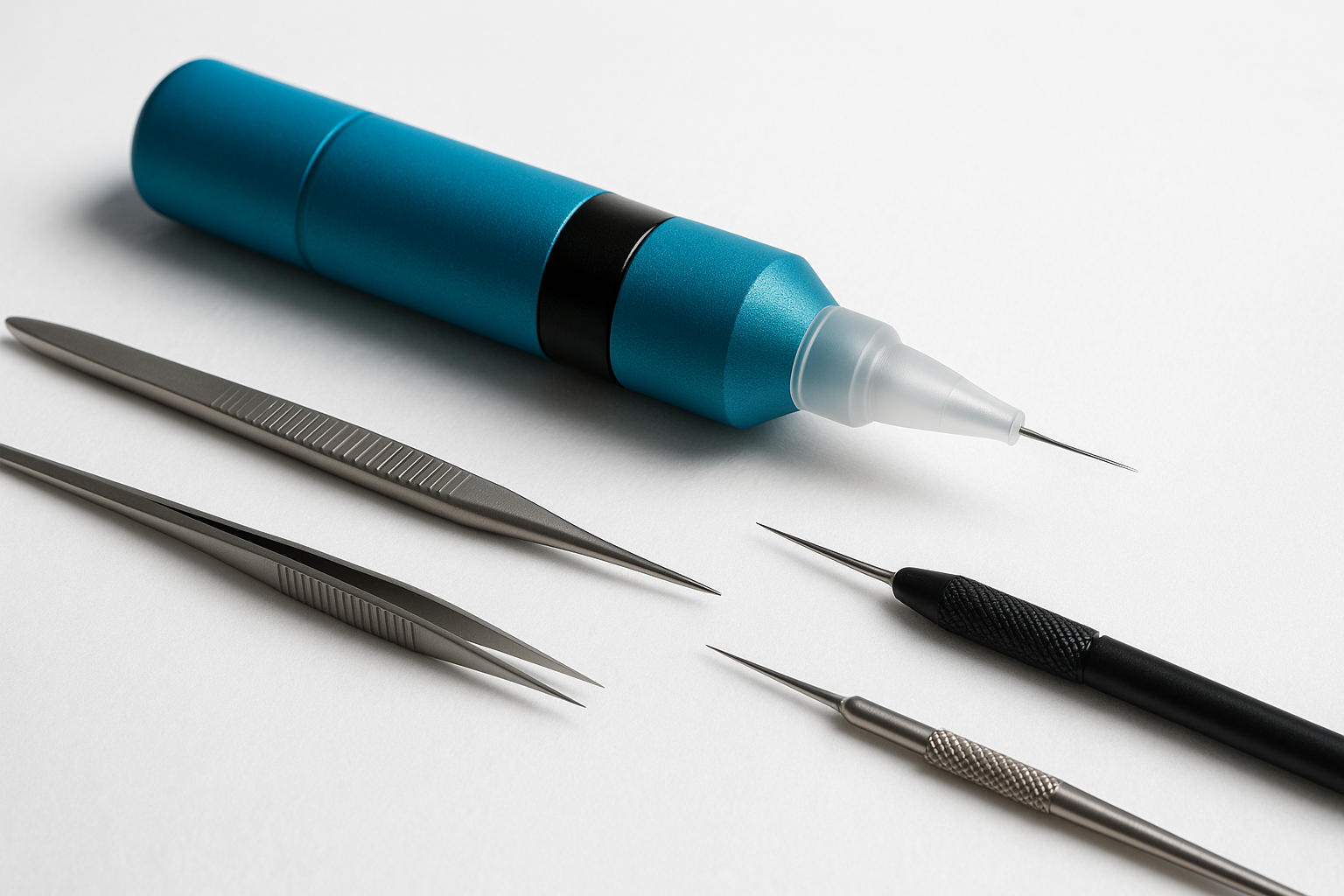
Losing your hair can be a tough experience. It often affects your confidence and how you feel about yourself. Many people in India are now choosing hair transplant surgery. This procedure can bring back your natural hairline and boost your self-esteem.
But with so many options available, how do you choose the right clinic? Picking the best clinic is a big decision. It’s an investment in yourself and your future confidence. This guide will help you understand the most important qualities to look for. It’ll make sure you make a smart and informed choice.
Why Your Choice of Clinic Matters So Much
A hair transplant is more than just a medical procedure. It’s a blend of science and art. A good surgeon understands natural hair growth. They also know how to create a hairline that suits your face. A poor choice can lead to unnatural results, visible scarring, or even wasted money. Imagine a hairline that looks too straight or ‘pluggy’ – that’s the kind of disappointment we want you to avoid. It can be emotionally distressing. You deserve excellent care and natural-looking results for such an important decision.
Essential Qualities: The Foundation of a Great Hair Transplant Clinic
Let’s look at the absolute must-haves for any reputable clinic.
1. Board-Certified & Experienced Surgeons
This is perhaps the most critical factor. Your surgeon should be highly qualified. Look for a doctor who is specifically trained in hair restoration. They should hold relevant certifications. Experience truly counts here. Ask about their years of practice. Also, ask how many hair transplant procedures they have performed. An experienced surgeon means precision and skill. Many patients find immense peace of mind knowing their surgeon has seen every scenario, ensuring a smoother process. It also means they’re equipped to handle any unexpected issues during surgery.
Practical Tip: Don’t hesitate to ask for the surgeon’s CV or professional credentials. A transparent clinic will gladly provide this.
2. Proven Track Record & Transparent Results
A top clinic will proudly show its past work. Look for a comprehensive ‘Before and After’ photo gallery. These photos should show various patients and different angles. They should also demonstrate long-term results, not just immediate post-surgery images. Also, check for patient testimonials and reviews. Look at independent platforms like Google Reviews or specialized medical forums. This gives you a real picture of patient satisfaction.
Practical Tip: Ask if you can speak with former patients. This provides firsthand insights into their experience.

Real Case Studies
Case Study 1: Restoring a Receding Hairline for a Leading Tech Executive
Mr. Alex T., a 45-year-old tech executive, was experiencing significant hair loss in his frontal hairline and temples, which was affecting his professional image and personal confidence. After extensive research, he chose a reputable clinic known for its expertise in natural hairline design. The clinic performed an FUE procedure, transplanting 3,200 grafts to meticulously reconstruct his hairline and add density to his temporal regions. Post-procedure, Mr. T. reported a 96% graft survival rate. Within 12 months, he achieved a natural-looking, dense hairline that seamlessly blended with his existing hair. He noted a significant boost in confidence, which he attributed to improved professional interactions and personal satisfaction, stating, “The results exceeded my expectations, making a real difference in how I present myself.”
Case Study 2: Enhancing Hair Density for a Marketing Professional
Ms. Sarah L., a 38-year-old marketing professional, suffered from diffuse thinning across her crown, making her hair appear lifeless and thin. She opted for a DHI (Direct Hair Implantation) procedure at a specialized clinic, focusing on increasing overall density rather than just rebuilding a hairline. The clinic strategically implanted 2,500 grafts into the thinning areas, using the DHI method to ensure precise angle and depth for each graft. By her 9-month follow-up, Ms. L. experienced an estimated 50% increase in hair density in the treated areas. This led to fuller-looking hair that she could style with ease, eliminating the need for concealing products and enhancing her daily confidence. “It’s incredible how much fuller my hair looks and feels,” she shared, “It truly transformed my appearance without looking ‘done’.”
Case Study 3: Correcting Previous Transplant Issues for a Small Business Owner
Mr. David P., a 52-year-old small business owner, had undergone a hair transplant years ago at a different clinic, which resulted in an unnatural, “pluggy” appearance. Seeking a corrective solution, he consulted a highly experienced clinic specializing in revision procedures. The surgeon recommended a targeted FUE revision to extract misplaced grafts and implant new, smaller follicular units to create a softer, more natural transition along his hairline and integrate better with his native hair. A total of 1,800 grafts were meticulously placed. Over 18 months, Mr. P. achieved a remarkably natural and undetectable result, correcting the aesthetic flaws from his previous surgery. He reported not only a significant improvement in his appearance but also a 75% reduction in self-consciousness related to his hair, regaining comfort and confidence he had long lost.
3. Advanced & Appropriate Technology
Modern hair transplant techniques offer amazing results. Understand the different methods available, such as FUE (Follicular Unit Extraction) and DHI (Direct Hair Implantation). A good clinic will use the latest equipment. This includes high-magnification microscopes for graft preparation. They should also have specialized tools for extraction and implantation. These tools ensure graft survival and minimize scarring. However, remember that technology supports the surgeon’s skill; it doesn’t replace it. To learn more about common techniques, you can read about understanding the FUE technique.

Technical Specifications for Hair Transplant Procedures
| Specification/Category | Typical Range/Detail |
|---|---|
| Primary Techniques Utilized | Follicular Unit Extraction (FUE), Direct Hair Implantation (DHI) |
| Graft Type | Follicular Unit Grafts (1-4 hairs per graft) |
| Extraction Tool Size (FUE) | 0.6 mm – 1.0 mm micro-punches (motorized or manual) |
| Implantation Tool (DHI) | Choi Implanter Pen (0.6 mm – 1.2 mm diameter) |
| Average Graft Survival Rate | 90% – 98% (under optimal conditions and skilled execution) |
| Anesthesia Type | Local Anesthesia (Lidocaine, Prilocaine) with optional sedation |
| Operating Room Environment | Sterile, accredited surgical facility |
| Magnification Used (Graft Handling) | 2.5x – 10x (for graft dissection and implantation) |
| Typical Number of Grafts per Session | 1000 – 5000 grafts (depending on donor capacity and recipient area) |
| Recommended Recipient Density | 40 – 80 Follicular Units per cm² (customized per patient) |
| Post-Operative Follow-up Schedule | 1 day, 1 week, 1 month, 3 months, 6 months, 12 months (variable per clinic) |
| Typical Procedure Duration | 4 – 8 hours (depending on graft count and technique) |
4. Comprehensive & Ethical Consultation Process
A first consultation is crucial. The clinic should offer a thorough scalp analysis. They must also review your full medical history. They should set realistic expectations for your results. A reputable clinic won’t ever pressure you into making a quick decision. They’ll educate you about all options. They’ll also provide a customized treatment plan, not a “one-size-fits-all” approach. This process builds trust and ensures the procedure is right for you.
5. Highly Skilled & Dedicated Support Staff
The surgeon is vital, but the entire team plays a role. Experienced technicians are key. They assist the surgeon and handle delicate hair grafts. Their expertise directly affects the success of your transplant. Patient coordinators also help. They manage scheduling and answer non-medical questions. A well-coordinated team ensures a smooth and supportive journey for you.
Finding Reputable Hair Transplant Clinics: Beyond the Basics
Once you’ve covered the essentials, consider these qualities that truly set a clinic apart. This is where a good clinic becomes great.
6. Exceptional Post-Procedure Care & Follow-Up
Your journey doesn’t end when the surgery is over. Excellent clinics provide detailed instructions for recovery. Many patients tell us how reassuring it was to have constant support, helping them navigate their recovery smoothly and confidently. They’re available to answer your questions during this period. Follow-up appointments are also important. They help monitor your progress and address any concerns. Proper aftercare is crucial for healing. It also helps with graft survival and your overall satisfaction. For comprehensive guidance, see our section on detailed post-operative care.
7. Commitment to Patient Education & Realistic Expectations
The best clinics are honest. They openly discuss potential risks and side effects. They also explain recovery timelines. They manage your expectations realistically. This includes discussing achievable results. They’ll also talk about donor area limitations. Understanding these points prevents disappointment. It also builds a strong, trusting relationship between you and the clinic.
8. Clinic Accreditation & Safety Standards
Patient safety is always paramount. Ensure the clinic operates with proper licensing. It should comply with all local and national health regulations. Check their hygiene protocols. Ask about sterilization practices and infection control. Knowing they have emergency preparedness plans in place offers peace of mind.
9. Transparent Pricing & Value Explanation
A trustworthy clinic provides clear, itemized costs. You should understand exactly what your fees include. This means the number of grafts, the surgeon’s fee, and follow-up care. If they offer financing options, these should be explained clearly. Remember, the cheapest option is rarely the best for a medical procedure. Focus on value, which means quality results for your investment.
10. Patient Privacy & Confidentiality
Hair restoration is a personal journey. A top clinic respects your privacy. They handle your personal information and photos with utmost care. Private consultation rooms ensure your comfort and discretion. This professional approach shows their respect for your sensitive situation.
Red Flags: What to Absolutely Avoid
Be cautious of clinics that show any of these warning signs:
- Bait-and-Switch Pricing: Prices change unexpectedly after your initial quote.
- “Too Good to Be True” Promises: Unrealistic guarantees of perfect results.
- High-Pressure Sales Tactics: Forcing you to decide quickly with special “today only” offers.
- Lack of Before & After Photos: Or only showing a few, non-diverse examples.
- Unqualified Staff: Technicians or assistants performing key parts of the surgery without proper supervision.
- Unclean or Outdated Facilities: A lack of hygiene can lead to infections.
- No Clear Aftercare Instructions: Leaving you without guidance post-procedure.
Your Essential Checklist: Questions for Your Consultation
When you visit a clinic, be prepared. Ask these important questions:
- How many years of hair transplant experience does the surgeon have?
- Are you board-certified specifically in hair restoration?
- Can I see your comprehensive before-and-after photos, including long-term results?
- What technique do you recommend for me, and why? (FUE, FUT, DHI?)
- Who will be performing the extraction and implantation of the grafts?
- What is your post-operative care protocol?
- What are the potential risks and complications, and how do you mitigate them?
- What is the total cost, and what exactly does it include?
- Can you connect me with former patients?
Ready to take the next step? You can schedule a consultation to discuss your specific needs.
Conclusion
Choosing a hair transplant clinic is a significant decision. It impacts your appearance and confidence for years to come. By focusing on these essential qualities, you can protect your investment. You can ensure you receive the best possible care. Prioritize surgeon expertise, transparent results, and ethical practices over price alone. Trust your instincts and don’t ever rush into a decision. By being thorough, you’ll find a clinic that delivers the natural, lasting results you deserve.
Frequently Asked Questions

